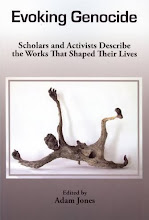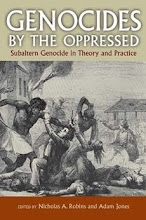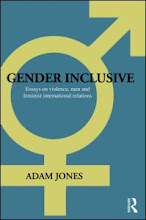It's Time to Hold Rwanda Accountable For Its War Crimes
By Mvemba Phezo Dizolele
The New Republic, October 5, 2010
"The Senegalese poet Birago Diop once wrote that the dead are not really dead. They live on in the wind, forests, and rivers, their pleas for justice echoing among the living. So it is today in the Democratic Republic of Congo, where more than five million people have been killed in the world’s deadliest conflict since World War II. But the calls for justice by the dead and the living have been repeatedly muted in several classified or sanitized United Nations reports, all to protect a handful of powerful—and likely guilty—parties in the supposed interest of peace and stability. Today, the international community finds itself at a crossroads concerning Congo. In late August, a draft report by the UN High Commission for Human Rights was leaked to the French newspaper Le Monde. It documented more than 600 incidents of gross human rights violations by Congo’s warring factions and their allies in Rwanda, Uganda, Angola, Zimbabwe, and Burundi. Amid the more serious allegations, the report accuses Rwandan Tutsi soldiers and their allies in Laurent-Désiré Kabila’s rebel alliance of committing war crimes, crimes against humanity, and alleged acts of genocide against tens of thousands of Hutus in Congo. Some of the victims were génocidaires from Rwanda, but others, including women and children, were not.
The allegations of massacres of innocent Congolese Hutus -- who were targeted because they were the ethnic kin of the murderers in Rwanda -- are especially damning. Clearly, these crimes, many of which occurred in the aftermath of the Rwandan genocide, complicate the standard narrative of that genocide, which in turn threatens the strong support that Rwandan president Paul Kagame continues to receive from the Western donor community. ... Congo is stuck in a violent cycle of conflict, corruption, and public mismanagement, which has created a paralyzing crisis in political leadership at the national and international levels. Until the grievances mentioned in the report are addressed in an appropriate forum for justice, Congo will not know peace. Congo is the broken backbone of Central Africa and needs to be treated accordingly. In such dire cases, there is no substitute for justice."
Wednesday, October 06, 2010
Subscribe to:
Post Comments (Atom)














No comments:
Post a Comment
Please be constructive in your comments. - AJ